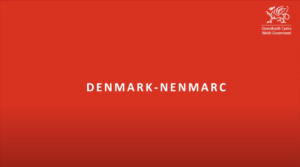There have been numerous ways in which businesses have looked to prepare for Brexit. For some, setting up operational hubs on the continent has proved popular. Others have switched head office locations, whilst some are still resolute in their lethargy to make any operational or structural changes at all.
But for some UK companies, a digital approach to avoiding the potential steepest of pitfalls has proved most popular – claiming an e-residency in Estonia.
The Estonian government created e-Residency over fifteen years ago as a means for residents to communicate with the government, alongside 99% of other governmental services. And five years ago, this programme was opened up to foreigners who were already attached to Estonia to some degree – including companies who which to have a digital identity as being an EU firm.
Managing director of the e-Residency programme, Ott Vatter, whilst speaking to readyforbrexit.co.uk, noted an increase in applications from UK businesses since the Brexit referendum result.
Vatter said that: “We have seen a significant increase in applications for e-Residency since Brexit. e-Residency is useful for Brits because it means that they can still have a company within the EU and still remain in the EU’s legal framework without actually physically leaving the UK space.
“It is a virtual gateway to the EU, without being in the EU.”
For €100 you can register for e-Residency, and it costs €190 to establish a company alongside additional bookkeeping services if required. Yet whilst personal applications don’t result in becoming a physical resident or requiring to pay tax to Estonian authorities, businesses set-up using the programme it becomes a tax resident, yet tax will likely still need to be paid to UK authorities in this example if that’s where the customer base and main premises reside.
Vatter explained that: “Before e-Residency, you could create a company in the EU by travelling to Germany or Estonia or France, for example, and pay quite an expensive fee to a lawyer and create an EU company.
“So its conception, e-Residency is not anything new. What’s different is the fact that you can do it from the comfort of your home using your computer from anywhere in the world and when you become an e-Resident there are no obligations. It doesn’t mean that you become a tax resident or a resident of Estonia. There are no strings attached when you apply for e-Residency. It’s a personal status.
“Now, when you create a company using e-Residency then that company is automatically a tax resident of Estonia, but if your main customers are still in the UK and your permanent establishment is in the UK then you will probably have to pay your corporate tax in the UK.
“The general rule is where you create your value, there you pay your tax. It gets a bit more complicated with cross-border services and service-based industries. And, if you are travelling around a lot as a freelancer and you don’t have one permanent establishment, then we see that the benefit for them might be to pay your taxes to Estonia because you don’t have one permanent establishment.”
It takes around two months to apply to become an e-resident, whilst company registration takes around 30 minutes.
Read more: UK SMEs confident of achieving 2020 aims despite Brexit uncertainty
But critically for UK firms, once the EU company has been established via e-Residency, that business has the right to offer goods and services across the EU and in accordance with the EU’s legal framework – even if that company is actually based in the UK and EVEN after a potential no-deal Brexit.
So far, 3,200 UK residents have signed up for the programme – including 450 companies.









